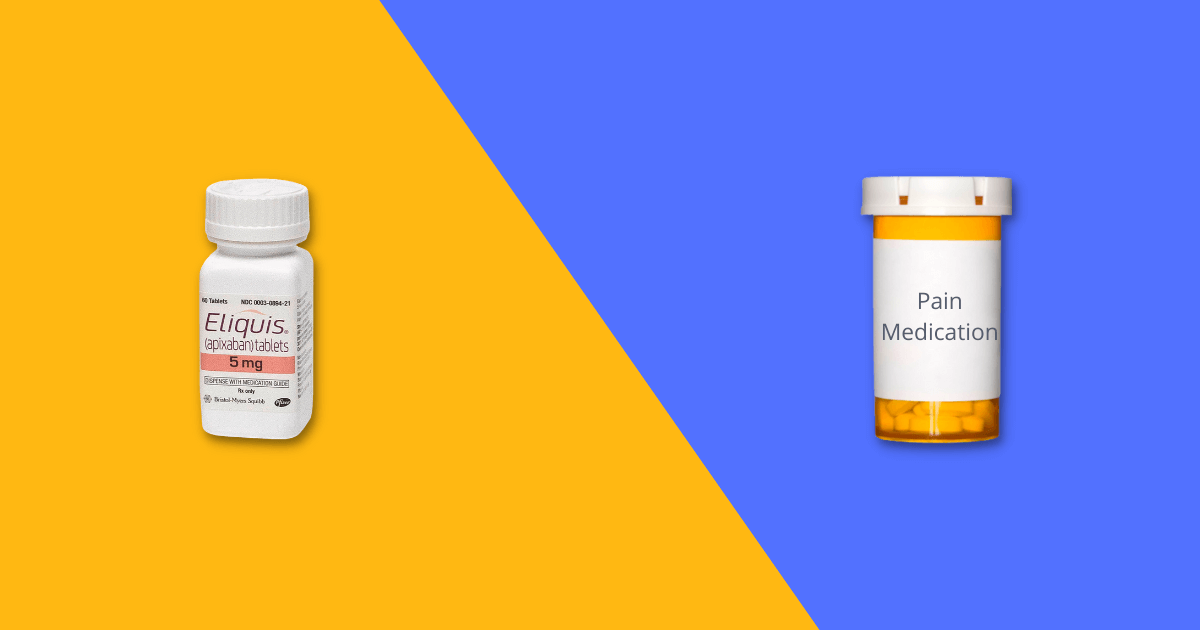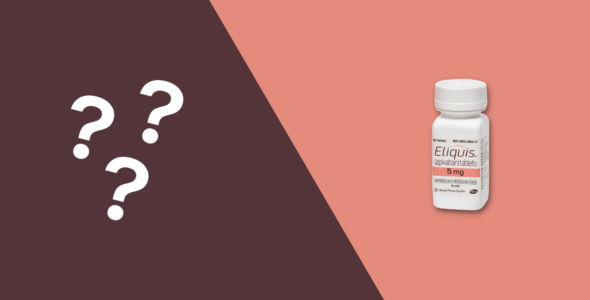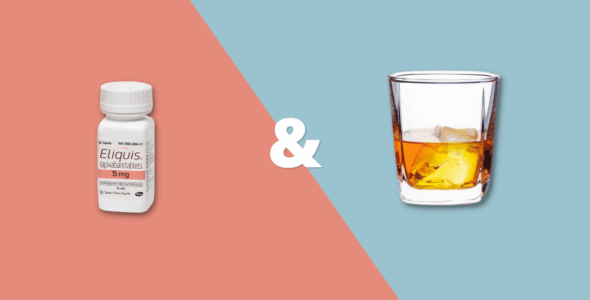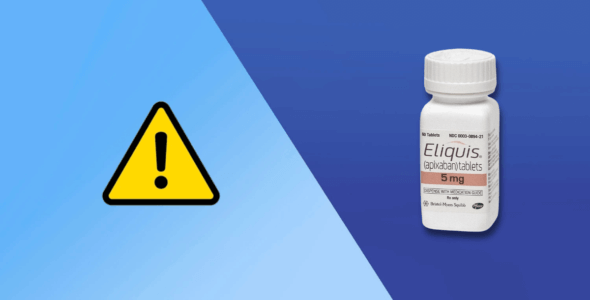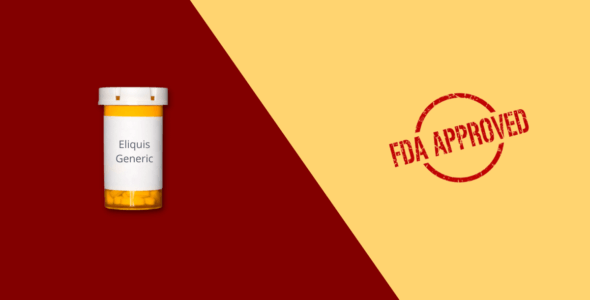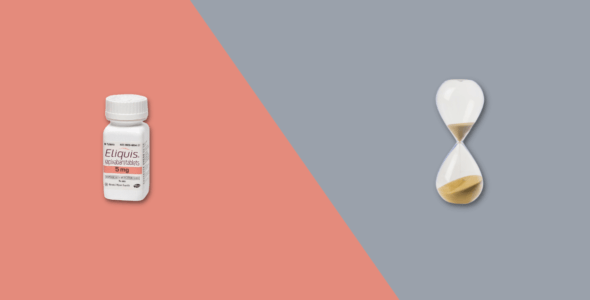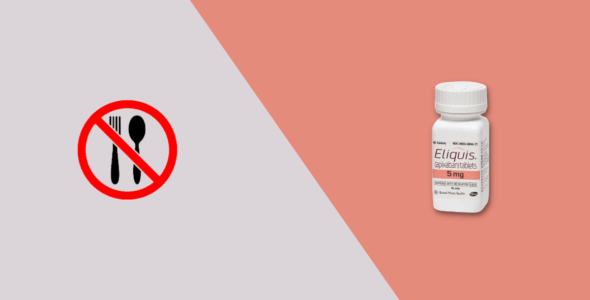What type of pain medication is safe with Eliquis?
Table of contents
Eliquis is the brand name for an FDA-approved prescription drug manufactured by Bristol-Myers Squibb and Pfizer for adults 18 years and older. Eliquis is used to prevent blood clots from forming in the body.
Sometimes people taking Eliquis will also need to take pain relievers for other conditions, and with there being such a variety of painkillers available it’s not always clear what is safe to take. Here, we’ll take a look at what Eliquis is, and which pain relievers are safe to take with it.
What is Eliquis?
Blood clotting is a complex process that helps prevent excessive bleeding when a blood vessel is injured, but sometimes blood clots can form in your body when they are not needed. This can block the flow of blood and lead to strokes or heart attacks. Eliquis is a factor XA inhibitor that stops your blood from clotting. It is approved:
- To reduce the risk of stroke and systemic embolism in patients with nonvalvular atrial fibrillation (irregular heartbeat)
- For the prophylaxis of deep vein thrombosis (DVT), which may lead to pulmonary embolism (PE), in patients who have undergone hip or knee replacement surgery
- For the prevention of venous thromboembolism (VTE), and for the reduction in the risk of recurrent DVT and PE following initial therapy
What type of pain medication is safe with Eliquis?
Acetaminophen (Tylenol) and natural supplements are safe and can be used for pain relief in combination with Eliquis.
What strong painkillers can I take with blood thinners?
Acetaminophen at its recommended dose is the safest pain killer you can take while taking an anticoagulant.
Which pain reliever is not a blood thinner?
Most pain relievers and anti-inflammatories contain blood-thinning agents and should be avoided. Tylenol (acetaminophen) is not a blood thinner and is a safe alternative.
Eliquis and other blood thinners such as Xarelto (rivaroxaban), Coumadin (warfarin), and clopidogrel are not recommended to be taken with nonsteroidal anti-inflammatory drugs (NSAIDs) or with certain antidepressants that may also be used for pain relief, such as selective serotonin reuptake inhibitors (SSRIs), and serotonin-norepinephrine reuptake inhibitors (SNRIs).
NSAIDs in combination with certain antidepressants should be avoided as these can increase the risk of bleeding by changing how platelets function.
What anti-inflammatory can I take with Eliquis?
You are advised to avoid anti-inflammatory drugs when taking Eliquis, due to an increase in the risk of bleeding. This will include prescription drugs and OTC pain relievers, as well as nonsteroidal anti-inflammatory drugs such as ibuprofen and naproxen.
Can you take extra strength Tylenol with Eliquis?
Tylenol is safe to take with Eliquis. No known drug interactions are known between Eliquis and Tylenol.
What pain relievers should not be taken with Eliquis?
NSAIDs should be avoided when taking Eliquis. Also, some over-the-counter combination medications should also be avoided due to an increased risk of bleeding. These include Advil Dual Action (acetaminophen/ibuprofen) and Excedrin (acetaminophen/aspirin/caffeine).
Can you take tramadol with Eliquis?
Yes, as no interactions have been found between Eliquis and tramadol.
Can you take Tylenol arthritis with Eliquis?
Tylenol is safe to take as a pain reliever with Eliquis, and there are no known interactions between the two. Tylenol does not act as a blood thinner and will not increase bleeding.
What can I take for arthritis pain while on Eliquis?
NSAIDs and Tylenol are both used to treat arthritis pain, headaches, or muscle pains. Tylenol, unlike NSAIDs, is known to be safe to take as a pain reliever with Eliquis.
Can I take ibuprofen with Eliquis?
You are recommended not to take aspirin or ibuprofen while using apixaban unless your doctor has advised you otherwise. Aspirin and ibuprofen may both increase your risk of bleeding when taken with Eliquis.
What is the best painkiller for people with high blood pressure?
Tylenol is most often the best pain reliever for people suffering from high blood pressure, as it will not increase your blood pressure. Alternatives such as nonsteroidal anti-inflammatory drugs such as ibuprofen or naproxen will increase your blood pressure.
Other medical conditions may also increase the risk of drug interactions with Eliquis. Speak to your doctor for medical advice before you start taking Eliquis.
Eliquis and NSAIDs
What are NSAIDs?
NSAIDs stands for non-steroidal anti-inflammatory drugs. These are medicines used to relieve pain and also to reduce inflammation (swelling), as well as to reduce high temperature. The most commonly used NSAIDs include ibuprofen (Advil, Motrin), naproxen (Aleve, Naprosyn), diclofenac, celecoxib, mefenamic acid, etoricoxib, indomethacin, and aspirin. Aspirin at higher doses is used for pain relief, at lower doses, it may also be used as an antiplatelet or a blood thinner. NSAIDs are available as prescription drugs or over-the-counter (OTC).
What precautions must I take when combining Eliquis and NSAIDs?
NSAIDs can increase the risk of bleeding when taken with Eliquis. Be sure to speak to your doctor or pharmacist for medical advice before taking any OTC drugs during treatment with Eliquis. They will be able to make sure these meds are safe to be taken with Eliquis.
Eliquis and acetaminophen
Acetaminophen is more commonly known as Tylenol or paracetamol. There are no known interactions between Eliquis and acetaminophen. However, over-the-counter pain relievers may contain a combination of acetaminophen with another class of pain reliever such as an NSAID. Speak to a healthcare professional for medical advice about potential drug interactions with OTC treatments and supplements.
Eliquis and opioids
No drug interactions have been found between Eliquis and opioids. This does not however mean that no interactions may occur. Always consult your healthcare provider for advice about any new medications you are planning to take.
What are some of the side effects of Eliquis?
The most common side effects of Eliquis in clinical trials include:
- Back pain
- Bruising
- Heavy menstrual bleeding
- Nosebleeds
- Bleeding gums
In rare instances, Eliquis can cause more serious side effects. These can include:
- Increased risk of bleeding which can cause serious and life-threatening.
- Spinal or epidural hematoma (bleeding around your spine)
- Tarry stools
- Vomiting blood or your vomit looks like coffee grounds
- Allergic reaction (hives, chest pain, wheezing, trouble breathing, swelling of your face, lips)
Your doctor will assess the benefits of using Eliquis against your risk of side effects. Make sure to read the U.S. Full Prescribing Information, including the boxed warnings and the medication guide to learn more about this medication. You are encouraged to report negative side effects or adverse reactions to Eliquis to the FDA. Visit www.fda.gov/medwatch, or call 1-800-FDA-1088.
Medically reviewed
A medical professional has reviewed this article.


Jamie Winn, PharmD
Jamie Winn, PharmD
Dr. Jamie Winn received his Doctor of Pharmacy in 2002 from the University of South Carolina College of Pharmacy, Columbia, SC. Jamie is a medical reviewer for NiceRx.

